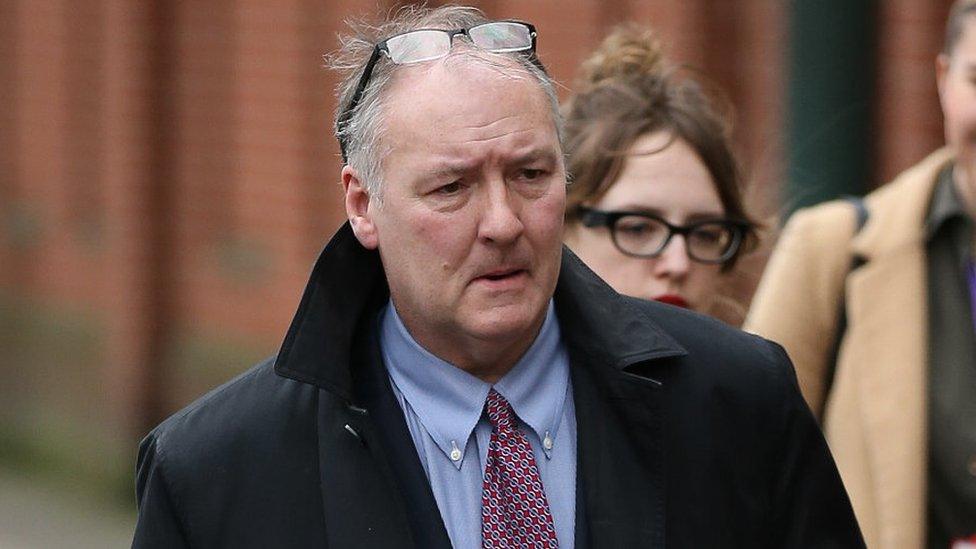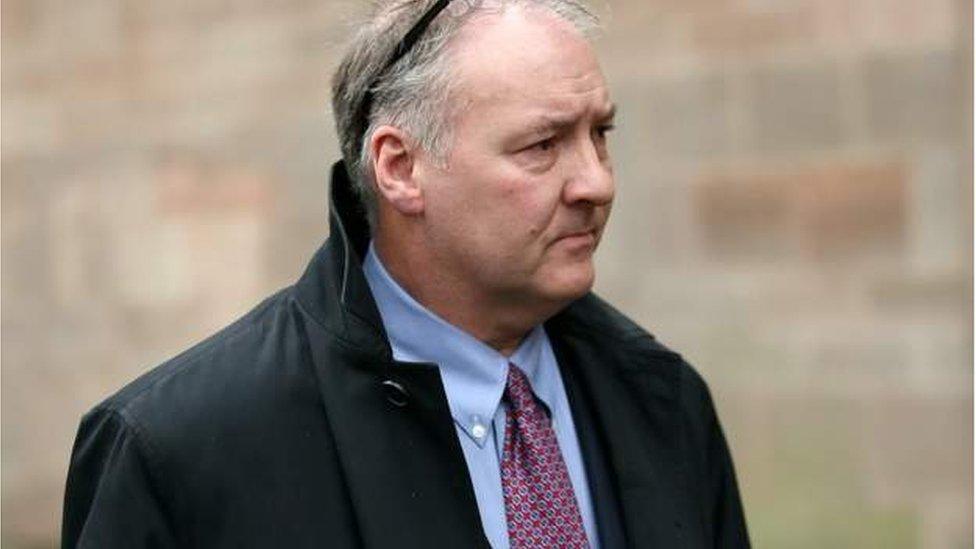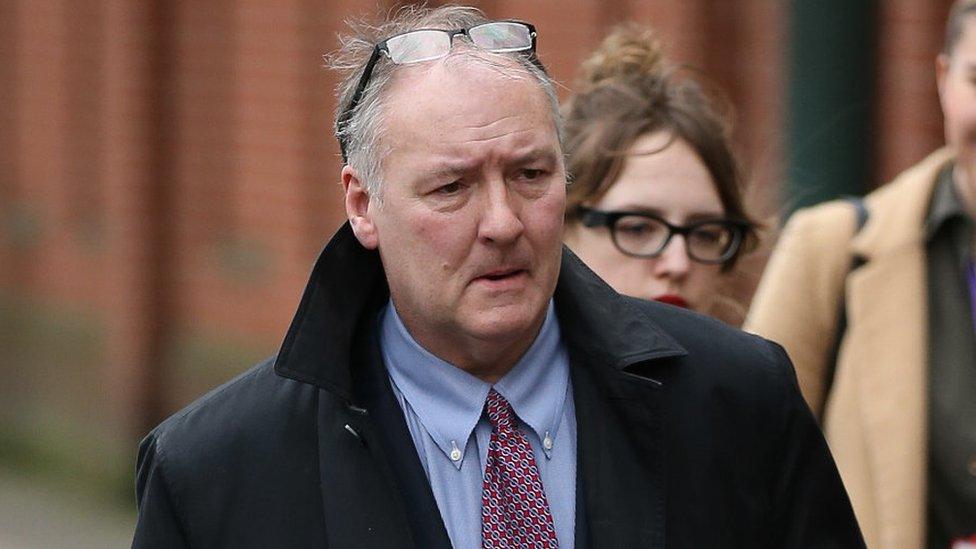Private hospitals 'must do more to keep patients safe'
- Published

Ian Paterson was jailed in 2017 after being convicted of intentionally wounding patients
Private hospitals must do more to keep patients safe and prevent rogue surgeons like Ian Paterson from harming anyone again, the Royal College of Surgeons for England (RCS) says.
Paterson was convicted of carrying out unnecessary breast surgery operations and jailed for 20 years in 2017.
Surgeons say the private sector must collect and publish the same level of patient safety data as the NHS.
And information about consultants' performances should be shared better.
RCS president Prof Derek Alderson said surgeons were "deeply shocked" by the case of Ian Paterson, who was found guilty of 17 counts of wounding with intent.
During his trial, it came to light that although concerns were raised about Paterson in the NHS, he continued to work in the private sector.
An independent inquiry into the breast surgeon's conduct has heard evidence from more than 150 patients, with more still coming forward.
'Stronger protection'
Prof Alderson said the case highlighted the need for "an urgent review of how we assure safety standards in the independent sector".
"There is no doubt that Ian Paterson was a rogue individual. That said, the entire healthcare sector must do more to prevent someone like him from ever causing harm again.
"This starts with being able to collect and analyse good quality patient safety and outcomes data," he said.
"There must be stronger oversight and protection for patients, regardless of whether they have their operation in an NHS hospital or in the independent sector."
The RCS is calling for:
private hospitals to collect and publish data on patient safety and clinical audits
data to be collected on all new surgical procedures and devices used in the private or NHS sectors
better monitoring of consultants' practising arrangements
better sharing of information about a doctor's performance between private and NHS sectors
agreements between private hospitals and local NHS trusts to provide critical care support if there are complications after an operation
Currently, the private or independent sector, does not have to publish data on how many and what procedures have been carried out - unlike the NHS.
The private sector has also not contributed to the majority of national clinical audits that collect data on care outcomes, including cancer ones - although it does register data on all replacement joints.
Private hospitals do have to report data on unexpected deaths and serious injuries, although the data is not routinely published by the Care Quality Commission (CQC).
'Serious incidents'
The body which represents private sector providers, the Independent Healthcare Providers Network, said it had made sure that providers were now allowed to submit more data and participate in more clinical audits.
"However, further work is needed to allow the sector to participate in the full range of NHS data sets and clinical audits and it is now vital that all those involved in better aligning NHS and independent sector data maintain the momentum," it said.
Prof Ted Baker, chief inspector of hospitals at the CQC, said it would continue to hold all providers of healthcare to the same standards of quality and safety, "regardless of how they are funded".
"All independent providers are required to notify CQC of any serious incident that takes place in their services.
"That information is used alongside intelligence gathered from other sources such as feedback from patients and their families, clinical audits and relevant performance data.
"Together this information helps us to determine where and when to inspect and identify where action is needed by providers to improve care," Prof Baker said.
The CQC said it fully supported the drive to extend access to the national clinical audit programme across the independent sector.
It said it was also going to start using a tool that monitors changes to the quality of care, including unexpected deaths and serious injuries.
The RCS says rising numbers of people are being treated in the private sector as the NHS looks to relieve capacity.
In 2017-18, the private sector undertook almost a third of all NHS-funded knee and hip replacements, the college says.
- Published31 May 2017

- Published3 August 2017

- Published28 April 2017

- Published31 May 2017
